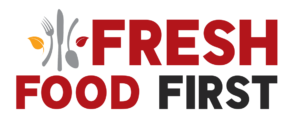At a glance:
- Choose a supplier who delivers reliably and understands your growth needs.
- Prioritise consistent product quality to protect your brand and customer experience.
- Maintain open, two-way communication and share feedback regularly.
- Invest in loyalty with partners who consistently support your success.
Not all suppliers deliver the same level of quality and reliability. If you’ve been in foodservice long enough, you’ve probably learned that the hard way. One week, your cheese arrives on time and in perfect condition; the next week, it’s delayed or inconsistent in quality. These disruptions aren’t just inconvenient, they can affect your menu, service and ultimately your reputation.
For an ingredient as central to your menu as cheese, you need more than just a supplier who fills orders. You need a partner, one who gets your business, supports your growth, and helps you deliver consistent quality to your customers.
So, how do you build a long-term partnership with your cheese supplier? Let’s find out.
Start by Choosing a Reliable Cheese Supplier
Before even discussing pricing or product range, ask yourself a fundamental question: can this supplier deliver what they’ve committed to, reliably and consistently?
A reliable cheese supplier isn’t just about punctuality (though that’s essential). It’s about consistently delivering high-quality cheese batch after batch, being responsive to changes in demand, and being someone you can rely on when things go sideways.
You should be able to depend on them, not only for the product itself but also for the service surrounding it. So, make sure you take time to research the supplier, which is the first step in building a long-term relationship with them.
Consistency Is a Foundation for Partnership
One of the quickest ways a supplier relationship breaks down is through inconsistent product quality. If the cheese you receive is inconsistent in its flavour, texture and melt performance from one batch to the next, it impacts your food and ultimately your customers’ trust.
That’s why consistency isn’t just a product issue; it’s a partnership issue. A supplier who values a long-term relationship will treat consistency as non-negotiable. Over time, this level of reliability builds confidence.
You trust them to deliver exactly what your kitchen needs, and they trust you as a committed, ongoing customer. That’s the kind of foundation strong supplier partnerships are built on.
Understand Your Supplier’s Capabilities and Limitations
It’s easy for suppliers to promise the world when they want your business. But a long-term relationship is built on knowing their actual capabilities, not just their pitch.
Can they scale as you grow? Are they equipped to provide wholesale cheese for restaurants in large volumes during peak season? Do they support regional distribution, or only deliver locally? And most importantly, do they offer all the cheese products required for your menu?
Having clarity on these capabilities allows you to plan more effectively, align your growth strategy, and avoid last-minute surprises. It helps you decide if the supplier will stay with you in the long run.
Foster Open, Two-Way Communication
The best supplier relationships feel like an extension of your kitchen. That means open, regular communication, not just chasing invoices and ETAs.
If you’re planning a seasonal menu shift, trialling a new cheese-based item, or simply need to reduce prep time due to high order volumes during peak season, let them know. They might suggest a better product from their range that fits your requirements.
For example, a smooth, high-performance option like hi melt burger slices can streamline burger assembly during busy service periods and help maintain a consistent presentation and taste on every plate.
Open communication lets your supplier understand your menu and business goals, helping you make smarter decisions, not just faster ones. This is a great way to build long-term supplier relationships.
Share Feedback and Be Open to Receiving It
Constructive feedback strengthens a supplier partnership. If something isn’t working, tell them. If a batch didn’t meet your standards, let them know. Great suppliers won’t take offence, they’ll fix it. And if they don’t? You’ll see that they’re not up for a long-term partnership.
But feedback isn’t just about problems. Share what’s working, too. If they have some input for you, receive it well. Over time, that back-and-forth feedback loop creates a rhythm, the kind that turns a supplier into a partner, and a transaction into a relationship.
When You Find a Good One, Stick With Them
Food service is tough enough without having to cycle through suppliers every few months. If you’ve found a cheese partner that delivers consistently, communicates openly, and genuinely supports your business, it makes sense to prioritise that relationship.
Loyalty matters both ways. As you grow, a trusted supplier will often go the extra mile for you, whether it’s priority stock allocation, flexible delivery windows, or just helping you avoid chaos during the holiday rush.
Whether you’re running a busy restaurant or managing large-scale catering operations, the key to success often lies in the strength of your partnerships. And when it comes to cheese, that partnership needs to be built on reliability, quality, and trust.
By choosing the right dairy supplier and investing in the relationship, you gain more than just a consistent foodservice cheese supply. You gain peace of mind, operational confidence, and a partner who grows with you.


